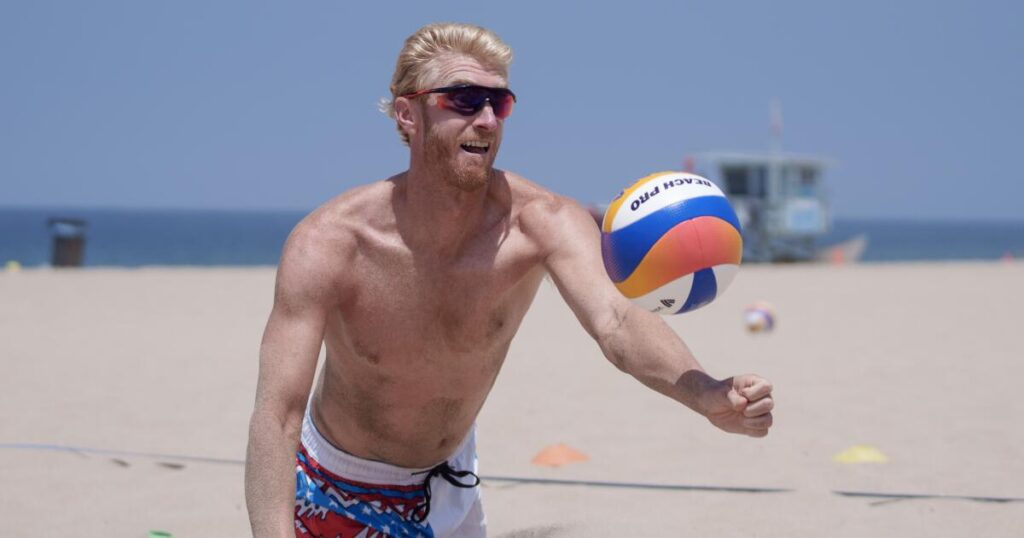Chase Budinger was exhausted after two hours of practice, but he warmed to a young fan who approached him on the promenade near the volleyball courts in Hermosa Beach, hoping to take a photo with him. The boy had been watching Budinger and his partner, Miles Evans, during their final hour of practice from a nearby patio, waiting for the perfect moment to have his picture taken with one of the world's best beach volleyball players.
The boy craned his neck to look up at Budinger, who is 6 feet, 7 inches tall, and thanked him for taking the photo.
“You also played in the NBA, right?” he asks.
Budinger smiles approvingly and says that sometimes he forgets about his first career.
2024 Paris Summer Olympics
To most people in the United States, he's known as the former Arizona basketball star who was selected in the second round of the 2009 NBA draft, the NBA journeyman who once out-jumped rap stars in a dunk contest, or the co-Most Valuable Player who shared the top spot with Kevin Durant in the 2006 McDonald's All-American Game.
He then changed careers and took on a new name: Olympian.
The forward-turned-blocker will make his Olympic debut alongside Evans in the opening pool match on Monday in Paris. This Olympic rookie duo is an unlikely pairing: an NBA player; the 6-foot-4 defender didn't start playing volleyball until his sophomore year of high school. They're “underdogs,” Evans said. Evans played two years of indoor volleyball at the University of California, Santa Barbara, before switching to the pro beach circuit.
Now they're looking to prove themselves on the world's biggest stage.
“Going to the Olympics has always been one of our goals, but now it's time to step it up,” Budinger said. “Let's shock the world.”
Budinger always dreamed of becoming an Olympic athlete. He just didn't know which sport to play. Budinger grew up in a volleyball family, with his brother playing on the AVP tour and his sister playing professionally overseas. He was a high-flying outside hitter at La Costa Canyon High School in Carlsbad. Named Volleyball Magazine's National High School Player of the Year in 2006, Budinger was so highly rated that he was compared to volleyball legend Karch Kiraly and received dual-sport scholarship offers from UCLA and USC. However, Budinger chose Arizona, which does not have a Division I men's volleyball team.
He wanted to see how far he could go in basketball.
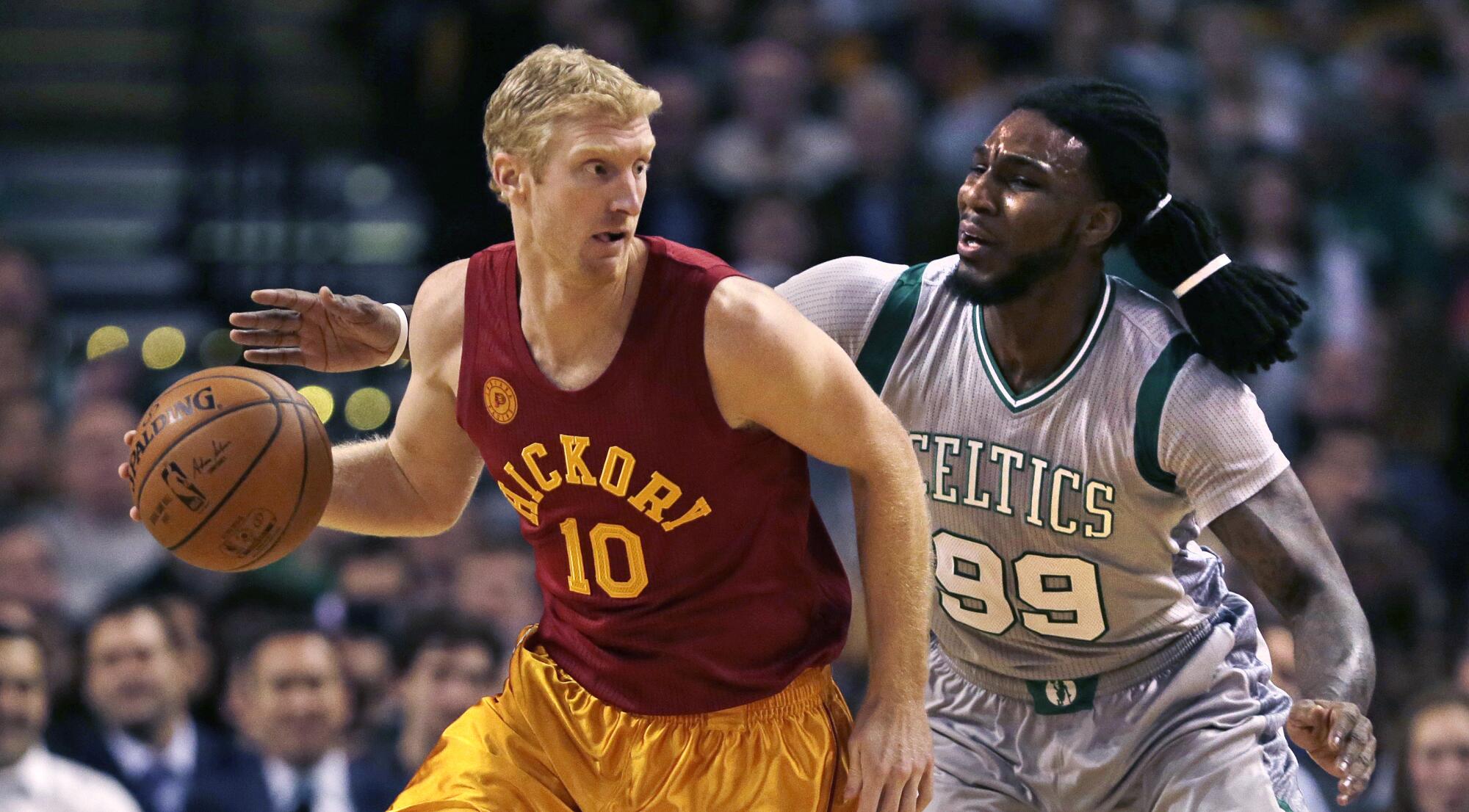
Indiana Pacers forward Chase Budinger (left) controls the ball in front of Boston Celtics forward Jae Crowder during a game in January 2016.
(Charles Krupa/The Associated Press)
A McDonald's All-American, Budinger was a star at Arizona, where he played three seasons and ranked 11th all-time in scoring before leaving. Drafted 44th overall by the Detroit Pistons, he was quickly traded to the Houston Rockets, where he played three years and averaged 9.4 points and 3.4 rebounds. He played three more seasons with the Minnesota Timberwolves before spending his final years in the NBA with Indiana and Phoenix.
But during his basketball career, he never left beach volleyball. He attended volleyball matches, often playing in teams of four or six. His beach teammates included former NBA player Richard Jefferson and former Lakers coach Luke Walton. He bought a house in Hermosa Beach, a mecca for training for the world's top beach teams.
Budinger's volleyball skills were still in development when two-time Olympian Sean Rosenthal first called him, solidifying his decision to forgo an overseas basketball opportunity to begin a full-time beach volleyball career. But the explosive blocker and attacker made the transition with ease alongside two of the sport's iconic defenders. Budinger was named AVP Rookie of the Year in 2018 alongside Rosenthal, then won his first AVP tournament in 2019 with his partner of two seasons, Casey Patterson. With the same tenacity that helped him stay relevant in the NBA, Budinger credits Rosenthal and Patterson for teaching him the nuances of a second sport.
“I try to bring that work ethic that I had in basketball to beach volleyball,” Budinger said. “Just work hard…work hard on the little things every day.”
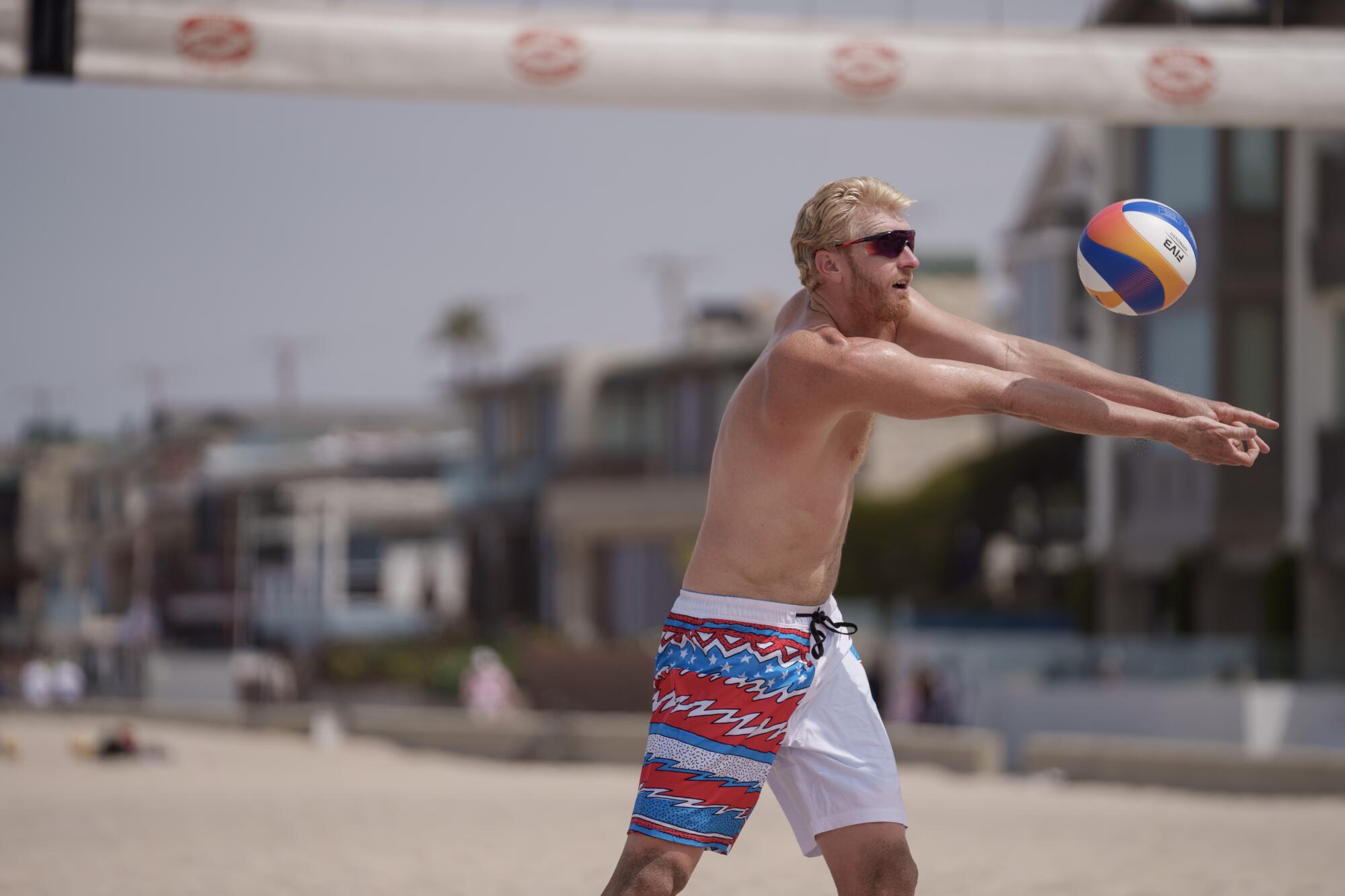
Chase Budinger attends a training session in Hermosa Beach. When Budinger decided to end his basketball career and focus on volleyball, one of his goals was to qualify for the Olympics.
(Eric Thayer/The Times)
When Budinger returned to volleyball, the Olympics immediately became her goal. Qualifying for the Paris Games begins on Jan. 1, 2023, and she set up interviews with several defenders she thought might be suitable.
Evans didn't expect to even make the final list.
The Santa Barbara native didn't think he'd done enough nationally to catch Budinger's eye. He had only one AVP event title, won with Andy Benesh in 2022. He was surprised when he got a text from Budinger inviting him to coffee. The two discussed Olympic goals and how to train to achieve them. Individually and as a team, they just weren't good enough, Budinger said.
still.
The two practice five days a week. In intense sessions that include jumping over knee-high ropes stretched over the sand to simulate attacking starts and diving for balls at every corner of the court, Budinger has no intention of ending a set on a bad note.
“We really wanted to get better, and we did in two years,” Budinger said. “We just worked and worked and worked.”
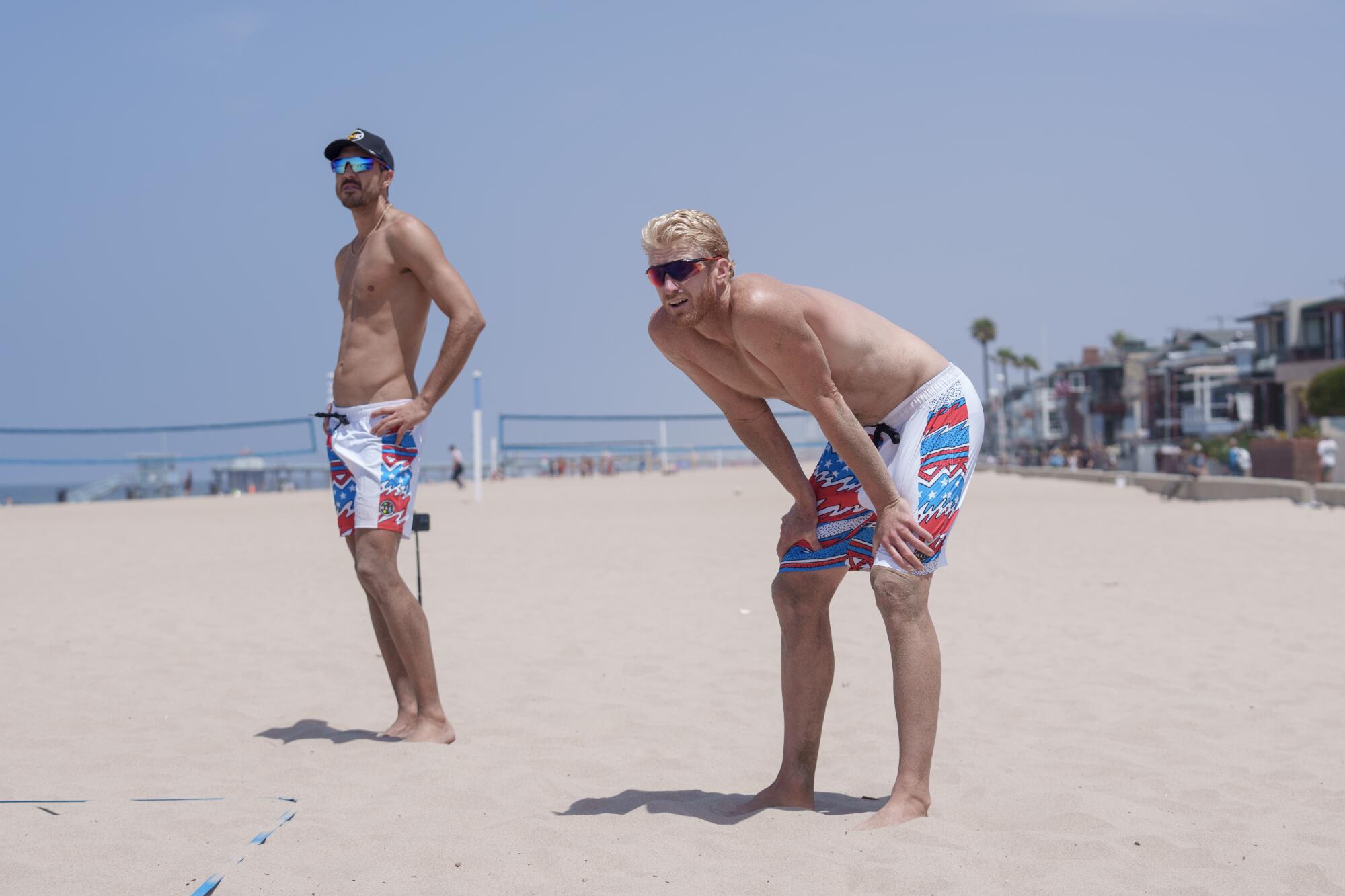
Qualifying for the Paris Olympics wasn't easy for Miles Evans (left) and Chase Budinger.
(Eric Thayer/The Times)
With a nearly two-year qualification process that was whittled down to just two months, Budinger and Evans were selected as candidates for the Olympic team over Trevor Crabb and Theo Brunner. To qualify for the Olympics, a team must finish in the top 17 in the FIVB points standings and be among the top two pairs for their country. Budinger and Evans finally qualified in the fourth and final match, but they fought their way to the end with five consecutive top-five finishes. With the team in top form, Evans said his confidence is at an all-time high.
Budinger said the two have perfectly tuned their systems. Their personalities balance each other out. Budinger admits he can be stubborn at times. Evans has the calm to deal with things in a constructive way, but they hold each other accountable and don't take things personally.
“Honestly, he's one of the most professional players I've ever played with,” Evans said. “The way he approaches the sport is a lot more positive and a lot more professional than most other players.”
Budinger and Evans, who had been chasing Crabb and Brunner for most of the qualifying process, secured spots in the final tournament, while Crabb and Brunner failed to qualify.
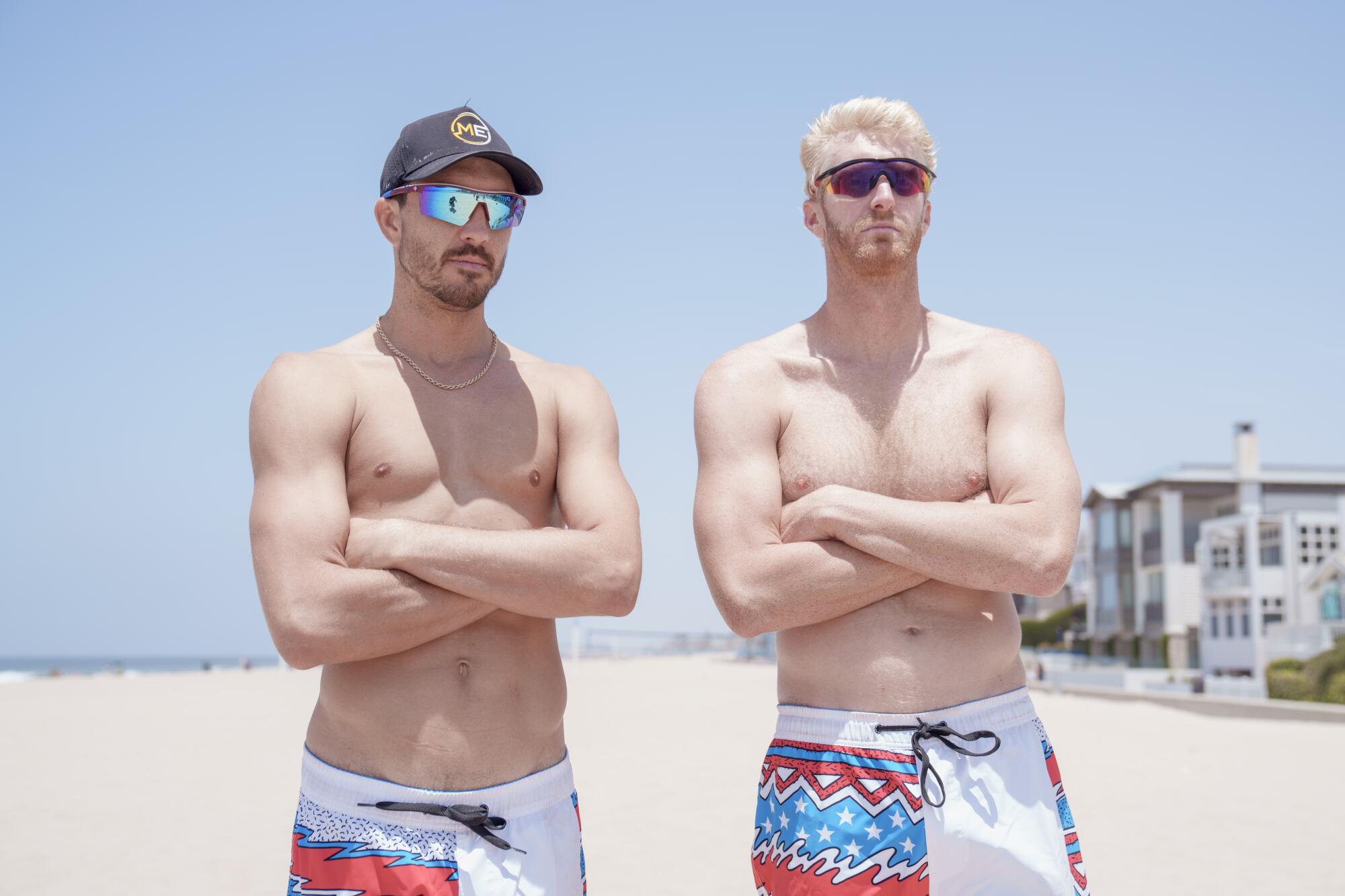
Beach volleyball players Miles Evans, left, and Chase Budinger begin their group stage match at the Paris Olympics on Monday.
(Eric Thayer/The Times)
Budinger and his coach, Ed Keller, watched the match from a tournament in the Czech Republic, hunched over their cell phones. Evans, standing a few feet away, couldn't see the action. Only when Budinger and Keller each pumped two fists in the air after the final point did Evans celebrate.
Budinger was relieved. The process had been stressful. Traveling to small, far-flung tournaments overseas was tough. With only two spots available to each country, not being able to root for a fellow American duo felt like a morbid mind game.
After Badinger qualified for the Olympics, he returned home to streets lined with red, white and blue banners. Neighbors decorated their homes with “Badinger-Evans Paris 2024” signs. His wife, Jessica, even taught their 2-year-old son, Beckham, a special phrase for the occasion.
“Dada is going to the Olympics.”

